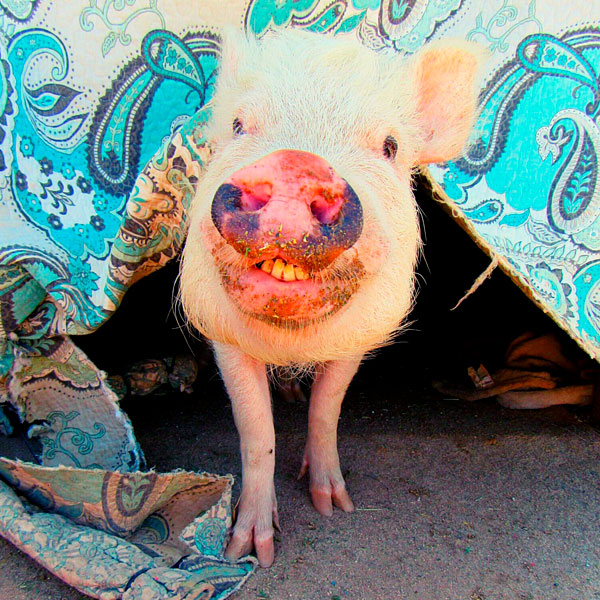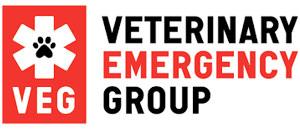Originally imported here from Vietnam, potbellied pigs are overpopulated due to the resurgence of a mini-pig craze. Driven by the marketing scams of eager sellers, social media is flooded with cute videos of cavorting micro pigs enticing viewers to acquire an adorable pet.
The hard truth: there’s no such thing as a “Miniature” or “Teacup” breed. While potbellied pigs are considered small against normal farm pigs (100-200 lbs. vs. 800-1000), mini pigs are the product of unethical inbreeding or underfeeding to keep them stunted. This widespread practice causes lifelong suffering to the pigs who develop severe skeletal problems from undernourishment and endless complications for the unwitting purchasers who wind up in over their heads. Opportunistic breeders mislead clients with flat-out disinformation about future size, with photos of “parents” who are actually piglets, feeding instructions that perpetuate undernourishment, and claims that pigs are just like dogs.
Approximately 90% of “pet” pigs end up returned or worse, abandoned. While this can be due to issues outside people’s control, such as temporary hardship, or moving to places that outlaw pigs as pets, it’s mostly due to owner overwhelm from lack of education. Mary laments that impulse buyers don’t research proper care of their new pets. Nobody’s prepared for what happens when that adorable micro piglet grows to be 200 pounds!
Failure to provide adequate space is one of the first problems of pig care. Highly intelligent and sociable, pigs need constant diversion and are easily bored. They can destroy property and gardens just by seeking adventure or play. Also, pigs are nothing like dogs. Mature pigs can be bullying heads of household, territorial, and overprotective of their humans. Without another pig, they’ll seek to dominate a child or pet. This is especially true of unneutered males and females in heat. Breeders claim they’re delightful companions for children and other pets, but like any species, pigs need their own kind to be happy.
Pigs can also be the target of bullying, especially by dogs. Dogs are predators; pigs are prey. Cohabitating is stressful for the pigs, and, unless they grew up together, violence is likely. Many Ironwood pigs arrive with damaged or missing ears along with PTSD from dog attacks. Despite the heartbreaking problems of this unregulated industry, commercial breeders keep advertising micro pigs and shoppers keep falling for it.
Surely, there must be pending legislation banning these inhumane practices. Mary explained that there should be but there is not. Far from being a legislative priority, it’s not even on most governments’ radar. The biggest breeder in Phoenix has never been shut down despite endless complaints! Pigs are considered livestock so animal welfare laws don’t apply to them. Conversely, breeders market pigs as pets so it’s a conundrum: are they livestock or pets?
She asserts that the best legal way to reduce neglect and abandonment is to ban the breeding of exotics like pigs. Next, owning pigs as pets should be illegal – it’s too fraught with risks to pig welfare. Even if Tucson had more than four exotic animal vets, a mature pig is too heavy for the average owner to transport. To compound things, neither the Humane Society nor PACC accepts pigs – their facilities aren’t equipped for such large animals.
After 21 years, Ironwood remains the only shelter in the Tucson area for pigs in distress, while the pig abandonment crisis has worsened. Today, Ironwood is at capacity with over 660! They get dozens of calls per day from people wanting to rehome pigs but are forced to turn most down to prioritize those in dire situations of neglect or abuse.
On the positive side, they have wonderful donors, willing adopters, and foster folks, plus Ironwood’s amazing volunteers who keep it all going! They enjoy local and national support thanks to their excellent community outreach. Ironwood offers many valuable services including boarding, adoptions, full advice on proper care and housing, rescues, and spaying/neutering. They’ve got an upcoming neuter clinic in Phoenix in two months. Such clinics are crucial for preventing the overbreeding that leads to neglect.
If you’re contemplating adding pigs to your family, here are a few of Mary’s tips:
Check your zoning laws. Make sure pig ownership is lawful
Don’t buy, adopt. Especially avoid pigs sold as micro or mini!
Always spay and neuter! Too few shelters and too many homeless make breeding unnecessary.
Adopt a pair. If you don’t, be prepared for complications
Place pigs in dogless homes unless you can keep them far apart.
Spend a day at Ironwood, or better, volunteer for a spell, to get a feel for daily pig care.
In conclusion, I asked Mary what folks would be most surprised to learn about potbellied pigs? “That they’re extremely sensitive and emotional. They love affection and belly rubs! “
For more information, to donate, or to volunteer on behalf of the 4th most intelligent animal on Earth, visit www.ironwoodpigs.org, or call (520) 579-8847.













